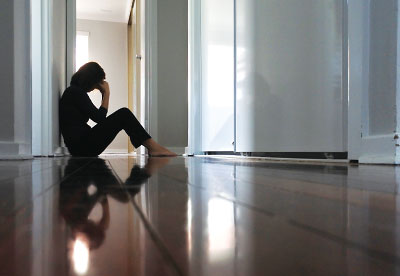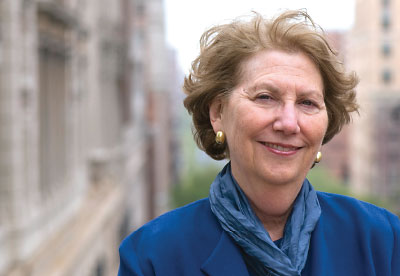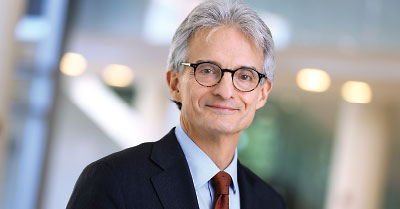Pandemic Takes Toll on Those Who Grieve
Abstract
A changed social landscape leaves many mourners in isolation, potentially raising their risk of complications of grief.

The COVID-19 pandemic has thrown a wrench into grief by interfering with the social, cultural, and religious practices that help people say goodbye to the dying and help the bereaved process their loss, comfort one another, and begin healing. Large gatherings have been replaced by small services with a limited number of mourners, perhaps with a livestream for others to view from their homes. Family members and friends who would have gathered at a fellow mourner’s home to reminisce about the deceased loved one while sharing a meal now speak into cameras, never truly making eye contact. The hugs, the shoulders to lean on, the hands to hold, the gentle offerings of a tissue or a cool cloth for eyes swollen by tears have all but disappeared because of the social distancing required to slow the spread of the virus.
“We need other people when we are grieving. We take care of each other emotionally and physically, bringing people food and going to their homes,” said M. Katherine Shear, M.D., the Marion E. Kenworthy Professor of Psychiatry at the Columbia University School of Social Work and the director of the Center for Complicated Grief in New York. “Physical touch also has a positive effect on emotions, but now we often can’t do that.”
Joseph S. Goveas, M.D., an associate professor in the Department of Psychiatry and Behavioral Medicine and the Institute for Health and Equity at the Medical College of Wisconsin, said that congregating is an important part of acknowledging loss and providing comfort in many cultures.
“When people are together, they talk about the person who died. They connect with one another through the stories they tell. We are not good at grieving in isolation, yet that is what many people are doing because of COVID,” said Goveas, who is also the director of the Medical College of Wisconsin’s Developing Resilience to Ease Anguish in Mourning (DREAM) Program. “I anticipate a spike in complications of grief.”
Grief and COVID-19 Resources for Psychiatrists and Their Patients
In November 2020 the APA Assembly approved the inclusion of prolonged grief disorder in DSM, ensuring the new diagnostic category will be included in DSM-5-TR. (See Psychiatric News.)
The APA Committee on the Psychiatric Dimensions of Disaster and COVID-19 has prepared guidance for health and mental health professionals who work with grieving patients. “Considerations for Family and Other Personal Losses Due to COVID-19-Related Death” is posted here.
The Center for Complicated Grief offers a patient resource that outlines milestones in healing and describes feelings and actions that can derail grief. “Healing Milestones: What to Expect From Grief With COVID-19, Addendum” is posted here.
The Center for Complicated Grief also offers training for mental health professionals that includes continuing education credits. Information about the training is posted here.
The Dana-Farber Cancer Institute offers a patient tip sheet written by Sue E. Morris, Psy.D., that includes strategies based in CBT. “Grieving During a Pandemic” is posted here.
In a paper in the October 2020 issue of the American Journal of Geriatric Psychiatry, Goveas and Shear described how the circumstances, context, and consequences of deaths during the pandemic comprise risk factors that they say will likely elevate rates of prolonged grief disorder. These include restrictions on visiting people who are dying; physical distancing that affects funerals, burials, and other rituals that support the bereaved; financial insecurity; and being alone.
Seeds of Grief
Goveas told Psychiatric News that the seeds of prolonged grief disorder may be planted when a loved one is hospitalized and dying.
“The same restrictions [on visitation] apply for all patients whether they have COVID or another condition. Everyone in the room is wearing personal protective equipment, and it’s mostly health care professionals, chaplains, and bereavement coordinators trying to communicate to the dying what the family tells them,” he said. “It can have a tremendous effect on family members to see a loved one going through the last few days of their life this way. We expect to be near our loved ones as they are dying, but instead we must watch through video or try to talk via telephone without really knowing how a loved one is reacting.”

“We are not good at grieving in isolation, yet that is what many people are doing because of COVID,” says M. Katherine Shear, M.D.
Goveas said that this can increase the intensity of the guilt that family and friends often feel when a loved one dies, especially if the death is from COVID-19.
“We almost always feel some guilt—did I do enough, could I have done something differently, what more could I have done? And with COVID, there is also a question of survivor guilt and a sense of uneasiness or discomfort for being spared,” he said. The possibility of having inadvertently infected the deceased with the virus would only compound that guilt, he added.
Sue E. Morris, Psy.D., the director of bereavement services at the Dana-Farber/Brigham & Women’s Cancer Center in Boston and an instructor in psychiatry at Harvard Medical School, said that not being able to say goodbye to a loved one can both increase guilt and be a barrier to grief and healing.
“Given what we see on the news about deaths in the ICU during COVID and so on, I think imagining how a loved one died, even if they were told the death was peaceful, could be problematic. The ‘not knowing’ can be torment,” Morris said. “They may have questions about what happened in the last 24 hours [of their loved one’s life]. I encourage people to reach out to the care team and ask the care team to walk them through what happened. It can provide a sense of control.”
In the August 2020 issue of the Journal of Pain and Symptom Management, Morris and her colleagues outlined palliative care tools and psychological strategies that health and mental health professionals may use when providing bereavement care for families during this pandemic. One of these tools is cognitive-behavioral therapy (CBT).
“This helps keep thinking realistic and acknowledges the impact of the pandemic, such as, ‘We are in a pandemic that has caught the entire world by surprise. Difficult decisions have had to be made for the health of our society as a whole, which were beyond the control of any individual,’” she said. “I would suggest using CBT-based skills, especially those targeting unhelpful thinking patterns that lead to guilt, anger, or avoidance of places or people.”

Robert Roca, M.D., M.B.A., M.P.H., reminds patients who feel guilty for not attending funeral services that staying home limits the spread of disease.
Feelings of guilt may also stem from not being able to attend a memorial service, said Robert Roca, M.D., M.B.A., M.P.H., an associate professor of psychiatry and behavioral sciences at Johns Hopkins University School of Medicine and chair of APA’s Council on Geriatric Psychiatry.
“A patient of mine felt that she would be letting her loved one down by not flying to attend her memorial service across the country. I asked her to consider whether this person would have wanted my patient to endanger her health by flying to the funeral. I also reminded her that she had already spent lots of time with her loved one prior to the death, when [the deceased] was able to experience and appreciate her support,” Roca said.
“To patients worried about breaking social norms by not attending services, I point out that the cultural norms are shifting and that doing the ‘right thing’ now involves staying in and limiting the potential spread of disease,” he added.
Although maintaining physical distance is critical to slowing the spread of the virus, it may lead to increased feelings of loneliness and isolation, particularly for those who were closest to the deceased. Family and friends, who under different circumstances would provide support to the bereaved, now must grapple with their own pandemic-related concerns, said Morris.
“Everyone is coping with their own challenges during the pandemic—home-schooling, working from home, caring for family, unemployment. They might not have the bandwidth to check in on their grieving loved one as much as they might usually do. In a way, it’s a bit of ‘out of sight, out of mind,’ ” Morris said.
Goveas noted that the bereaved also face the logistical and financial challenges wrought by the pandemic, even as they begin to navigate life without their loved one and take on new responsibilities that their loved one used to handle. This may be overwhelming to them, with the result that it delays their grief, he said.
Elements of Risk
Goveas said that mental health professionals should assess patients who may be at risk for complications of grief.
“These include people who have a previous history of psychiatric illness, trauma, or a difficult childhood,” Goveas said. “Also consider the nature of the relationship: Losing a child or spouse can be much more traumatic than losing a 90-year-old parent, especially if the child’s or spouse’s death was a violent one from suicide, homicide, or an accident.” There may be times when a patient who is already in treatment for a mental illness mentions in a therapy session that a loved one is dying, either of COVID-19 or another cause. The most important action that a mental health professional can take at that point is to listen, said Shear.
“Consider shifting the focus of that session to the person’s experience of the loss and grief. Say ‘I’m sorry to hear about that,’ and then ask them about it,” Shear said. “Be present and resist the desire to do something to treat this. It’s natural to want to reassure the person, but the best thing you can do is listen and ask questions and be present with the person in their pain.”
Roca encourages psychiatrists to work with their patients as they prepare for their loved one’s death so they may resolve grievances and say what they feel needs to be said before it’s too late. “One of the existential truths that COVID has made inescapably evident is that we don’t know how long we have, and one implication of this is that it’s wise not to defer doing what we know we need to do.”
Goveas stressed the importance of evidence-based treatment for patients who develop complications of grief.
“Once prolonged grief disorder is diagnosed, the evidence supports psychotherapy, namely, complicated grief psychotherapy. If the patient is depressed, there is a role for antidepressants. If the patient has anxiety, there is a role for cognitive-behavioral therapy,” Goveas said.
He added that mental health professionals should be flexible and prepared to use their skills and training creatively.
“There are certain aspects of the COVID pandemic that we would never have imagined could happen in our lifetime, like going to a funeral through Zoom or Skype,” he said. “Every day will bring new challenges.”
Goveas’ and Shear’s research was supported in part by the National Institute of Mental Health, the Costigan Family Foundation, the U.S. Department of Defense, and the New York Life Insurance Foundation.
Morris and colleagues did not report any outside funding. ■



